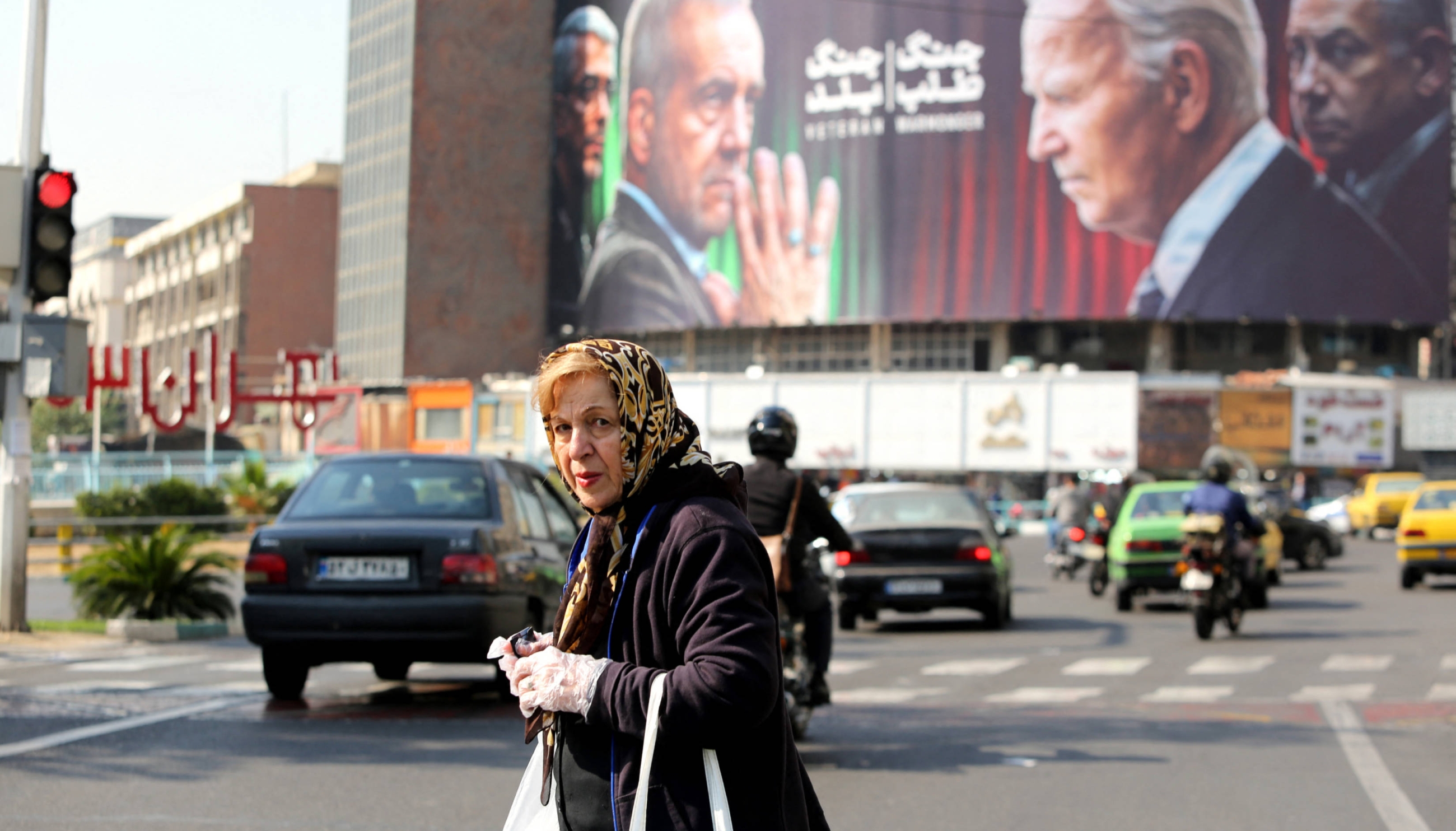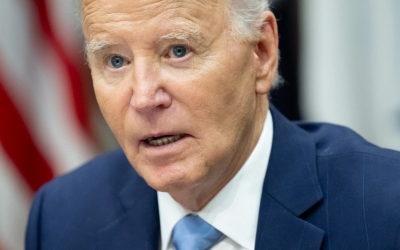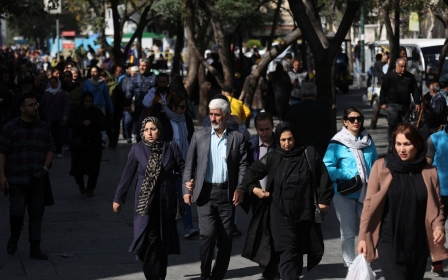Israel's attack on Iran sparks nationalist sentiment and divides public opinion

In the early hours of Saturday, while most Iranians were asleep, Israel launched a long-anticipated missile attack on Iran. Some were jolted awake by the sound of air defence systems over Tehran, while many others only received the news in the morning.
"I was watching a movie when the air defence systems started intercepting Israeli missiles. Although the sounds were distant, I’d been expecting this for weeks, so I immediately knew it had finally happened," Masoud, a Tehran resident, told Middle East Eye.
Israel and Iran have engaged in a cycle of retaliatory moves against each other for months.
The strikes on Saturday have been expected following a massive Iranian ballistic attack on Israel on 1 October, which was in retaliation for Israel killing Hamas leader Ismail Haniyeh in Tehran, and Hezbollah leader Hassan Nasrallah and a top Iranian commander of the Quds Force in Beirut.
"I was shocked to see on Instagram that Israel had attacked us. I’m relieved the army defended well and hope this doesn’t escalate further," said Asal, who had woken up early for her job at a cosmetic surgery centre.
New MEE newsletter: Jerusalem Dispatch
Sign up to get the latest insights and analysis on Israel-Palestine, alongside Turkey Unpacked and other MEE newsletters
National symbol
The Israeli attack struck military targets and killed four soldiers, serving in the army's air defence division, and one civilian. The death of the soldiers stirred nationalist sentiments across Iran, where the army, unlike the Islamic Revolutionary Guard Corps (IRGC), are revered as a symbol of nationalism.
'By killing these army officers, Israel inadvertently fostered a sense of national unity'
- Political analyst
An outpouring of grief and solidarity, even from popular celebrities who are critical of the Islamic Republic, flowed on social media.
Navid Mohammadzadeh, a renowned actor, shared an image of the fallen soldiers on his Instagram story, writing, "May their souls rest in peace, and their memory live on forever."
One widely shared screenshot of a message showed a text from one of the killed officers reassuring a friend with the caption, "Sleep tight; I will be awake."
"For Iranians, the army stands for national unity. Unlike the IRGC, it has largely stayed out of politics and economic affairs, which is why people see it as a purely national institution," a political analyst, who requested anonymity, told MEE.
"While Israel claims a victory, they have lost the public relations battle, especially in Iran. By killing these army officers, they inadvertently fostered a sense of national unity."
Retaliation versus restraint
The attack has fuelled intense debates on social media. While some Iranians are arguing for restraint, others, including nationalists and principlists, are calling for a strong response.
"Don’t be swayed by extremists. Decisions should reflect the practical wisdom of the Iranian majority," wrote Mohammad Fazeli, a sociologist.
Meanwhile, moderate documentary maker Hossein Dehbashi, known to be critical of both reformists and principlists, appealed directly to Supreme Leader Ali Khamenei, saying, "May you issue an urgent order to avenge our air defence martyrs and protect our skies."
Since Saturday, principlists have intensified pressure on the establishment to compel a military response. The radical newspaper Vatan Emrooz prominently featured "Iran Must Respond" as the main headline on its front page.
Some conservatives have also accused the armed forces of being overly cautious, likening them to former foreign minister Javad Zarif, known for his pro-diplomacy approach.
Their criticism came after statements made by Khamenei, the army and Iranian officials signalled a measured response to Israel's attack rather than an immediate retaliation.
"Iran, while reserving its right to a lawful and legitimate response at an appropriate time, emphasises the establishment of a lasting ceasefire in Gaza and Lebanon to prevent the massacre of defenceless and oppressed people," the Iranian army said in a statement.
The controlled tone of the statement was however welcomed by many in Iran.
Ebrahim Darooghezade, a moderate activist, wrote in a post on X: "According to a statement from the headquarters of the armed forces: the priority is a ceasefire in Gaza and Lebanon and the rescue of Hamas and Hezbollah. Those who incite Iran to respond immediately are either enemies, infiltrators, or fools."
What are the experts saying?
A geopolitics expert, who regularly writes for Iranian media, told MEE that Iran "must respond" to the attack, stressing the need to counter Israel’s perception of Iran’s missile strength.
'Their aggression wasn't significant. Therefore, our next move... should also be limited'
- Foreign policy analyst
"Beyond air defence, our missile reserves and firing capacity are crucial. What Israel targeted were key assets in Tehran’s calculations. Therefore, Iran should conduct its third operation on a larger scale than the previous one.
"Israel’s perception and assumption regarding our missile reserves must be altered, and we should surpass the THAAD [Terminal High Altitude Area Defense] anti-system as well. In this way, Israel’s objectives in attacking Iran will be met with failure."
In contrast, a foreign policy expert close to the reformists believes Iran might not mount a direct military response.
"Iran may consider a limited strike or could instead focus on creating challenges for Israel on the Lebanon front, possibly turning that into a war of attrition," he said.
Meanwhile, a foreign policy analyst close to the establishment told MEE that, "Israel has officially breached our territory and borders. We cannot ignore this action, but their aggression wasn't significant. Therefore, our next move, in comparison with our previous operation, should also be limited.
"This level of response helps in controlling the crisis. However, if we do not respond, this will lay the groundwork for further tension."
Middle East Eye delivers independent and unrivalled coverage and analysis of the Middle East, North Africa and beyond. To learn more about republishing this content and the associated fees, please fill out this form. More about MEE can be found here.





